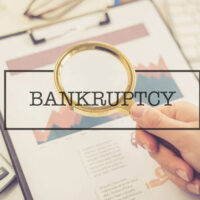Chapter 7 Bankruptcy on a Small Business: What Will Happen to the Business Equipment?

If you own a small business in the Tampa Bay area and are thinking about filing for Chapter 7 bankruptcy, we understand that you have questions about what will happen to the business property. For instance, if you small business is a restaurant in downtown Tampa and you have a substantial amount of kitchen equipment, will it all need to be liquidated? Or, if you are planning to file for Chapter 7 business bankruptcy and keeping an open mind about opening another small business in the future, will you be able to keep some of that equipment in the event that you open another restaurant? And will the answers to these questions change if you purchased the equipment on credit and still owe the creditor, versus if you purchased the items outright?
At Samantha L. Dammer, we regularly assist individual and business clients throughout the Tampa Bay area that are considering filing for bankruptcy. To help you understand how the decision to file for Chapter 7 bankruptcy will impact your small business and the equipment your businesses owns, we will discuss some of the questions presented above in greater detail.
Learning More About How Chapter 7 Bankruptcy Works for Businesses in Tampa Bay
In order to learn about what will happen to your business equipment, it is necessary first to understand how certain aspects of Chapter 7 bankruptcy works for businesses. As the U.S. Courts website explains, if your business is struggling and you cannot pay your debts, filing for Chapter 7 bankruptcy may allow you to discharge your debts and to start anew.
Depending upon whether you are the sole owner of the business (in which case you may be personally responsible for the business debts you have incurred), or whether your small business is its own distinct entity (and has been registered as an LLC or a corporation, for example), you will file Chapter 7 bankruptcy either individually or for the business, respectively. The situation can also become more complicated if your business is a partnership.
Florida Bankruptcy Exemptions in Business Liquidation Bankruptcies
Why is the manner in which you file important (either individually or on behalf of the business)? In brief, the type of small business will determine whether you file individually or for the business. If you file individually because you are personally responsible for the business’s debts, then you may be able to retain certain property through exemptions. The state of Florida has its own bankruptcy exemptions, which debtors must use when they file for bankruptcy. So, if you are a sole proprietor and are filing for individual bankruptcy due to your business debts, you will be able to claim up to $1,000 in a personal property exemption, and if you do not use the homestead exemption (which allows you to exempt the whole of your home), then you can claim an additional $4,000.
As such, the exemptions potentially could enable you to retain certain equipment that you own outright. A secured debt situation, however—where you are still making payments for the equipment—likely will be handled differently, however. You still may be able to keep the equipment by “reaffirming the debt” with the creditor, but you should discuss this option with your bankruptcy lawyer. There might also be other options if you owe more on the equipment than it is worth.
Chapter 7 bankruptcy for Tampa businesses is only available for entities like corporations and LLCs. If you file on behalf of your corporation or LLC, it is unlikely that you will be able to retain any of your business equipment. Unlike in personal liquidation bankruptcies, a Chapter 7 business bankruptcy does not allow the business entity to claim exemptions. As such, the business equipment—anything from restaurant appliances to heavy-duty printers—likely will be liquidated by the bankruptcy trustee in order to pay the debts of the business.
Discuss Your Case with a Bankruptcy Attorney in Tampa
If you have questions about filing for a Chapter 7 business bankruptcy, it is extremely important to work with an experienced bankruptcy lawyer in Tampa Bay. Bankruptcy law is very complicated, and the particular type of business you own can impact the way in which your bankruptcy case will be handled. Contact Samantha L. Dammer today to learn more about how our firm can assist with your case.
Resources:
leg.state.fl.us/STATUTES/index.cfm?App_mode=Display_Statute&URL=0200-0299/0222/0222ContentsIndex.html&StatuteYear=2012&Title=-%3E2012-%3EChapter%20222
uscourts.gov/services-forms/bankruptcy/bankruptcy-basics/chapter-7-bankruptcy-basics
